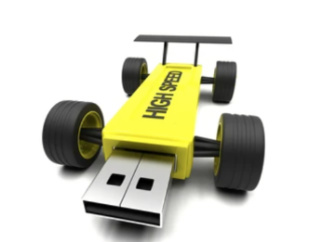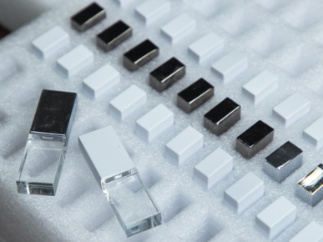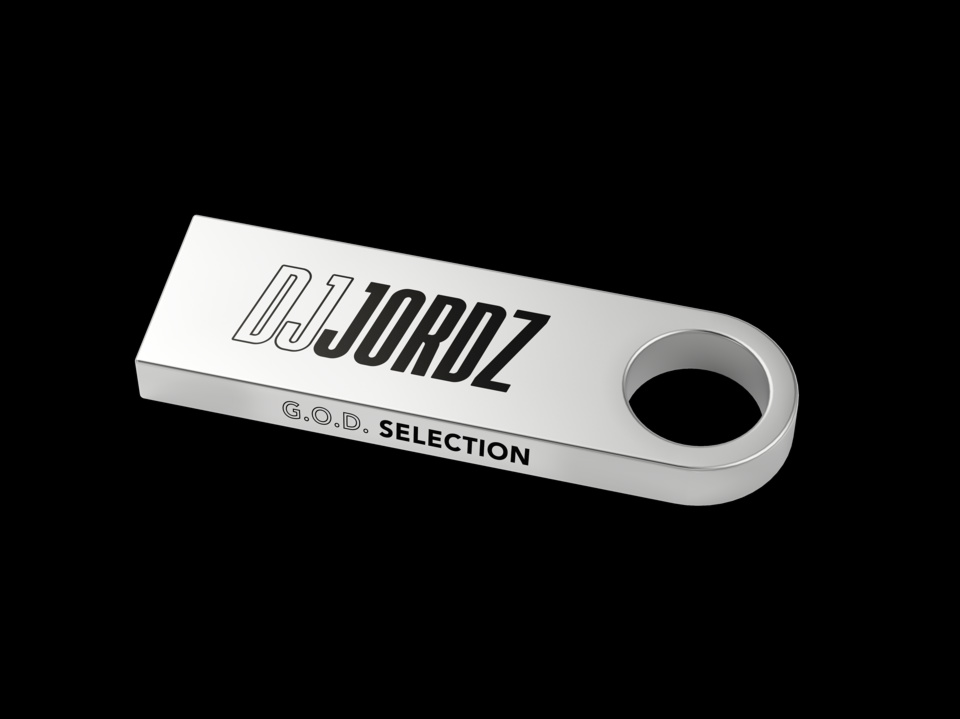As the medical world continues to evolve, so too do related data storage methods. With
medical flash drives and digital files, the industry has come so far since cabinets were filled with paper records. Technological innovations such as the
medical USB data card now play a role, paving the way for the MediCap USB-300. This is where medical technology will surely head in the future, so let’s dive in and discuss in more detail.
-
The Rising Importance of Efficient Memory Storage in Medical Imaging
Each and every medical image stored on various devices—ranging from an
x-ray imaging flash drive to an
MRI scan flash drive—holds crucial information to help determine the course of patient treatment. Effectively storing these images is of paramount importance. Likewise, devices such as portable (and advanced) X-Ray machines underscore the need for
memory solutions that are reliable and durable.
-
Essential Features of Medical Memory Storage Solutions
Medical storage isn't just about
space; it's also about efficiency, speed, and reliability. Given the increasing complexity of medical images stored on
medical flash drives, related solutions must offer:
-
Robust Capacity
: To accommodate detailed images, storage from 256GB–512GB is now essential on devices such as a medical USB data card.
- Speed
- : Patient lives on the line? Every second counts. High-frequency speed ensures immediate data access, notably crucial as it relates to an MRI scan flash drive.
-
Durability:
- Frequent x-ray imaging flash drive use calls for robust storage solutions that will hold up over an extended time.
-
Password Protection:
- It goes without saying that ensuring the security of confidential medical data is of the utmost importance.
-
MediCap USB-300: A Glimpse into Modern Medical Storage
Like a high-tech
medical USB data card, the MediCap USB-300 isn't just another standard storage device. Rather, its ability to record in high-definition and directly save to USB drives represents a significant leap forward. As for the corresponding benefits? They include:
-
Convenience:
- Additional transfer steps are simply not necessary, with direct saving streamlining the process to help medical flash drives shine through as an attractive option.
-
Portability:
- Data housed on medical flash drives makes it easier to not only share and transfer the same but also create backups in the absence of any hassles.
-
Efficiency:
- Faster data transfer times mean quicker diagnoses and treatment plans, enhancing the overall value of devices such as the MRI scan flash drive.
-
Advantages of USB Drives for Medical Imaging
USB drives—including specialized options such as
x-ray imaging flash drives—are truly transforming how medical data is stored and accessed. Advantages include:
-
Portability:
- Compact yet powerful, these drives are easily transportable to ensure data is always on hand for quick and simple access.
-
Functionality:
- Beyond just storage, these USB drives can run image-viewing programs and thus eliminate the need for additional software altogether.
-
Data Safety:
- With ubiquitous cyber threats on the rise, a physical "hard copy" of medical data housed on medical flash drives adds an extra layer of security.
-
Integration:
- USB drives, especially tailored options including an x-ray imaging flash drive or MRI scan flash drives, are easily integrated with personal health records (PHRs) to consolidate all patient health data in one defined place—ensuring patients, doctors, and other healthcare providers can gain quick and easy access to crucial health information whenever the same is required.
-
Personal Health Records (PHR) and USB Drives
Just as the name implies, a PHR is a comprehensive record of a patient's health history maintained and controlled by the patient him/herself. Given a recent boost in the adoption of a
medical USB data card and
medical flash drives, transferring information to and from PHRs is now more straightforward than ever before. Two primary types of PHRs exist:
-
Standalone PHR
: Created by patients independent of any health facilities, storage is housed on personal devices (or online) to transfer data from medical flash drives with ease—ensuring patient health records are always up to date.
-
Tethered PHR
: Connected to a specific healthcare facility's electronic record system and accessed via a secure portal, this PHR option can directly synchronize with devices such as an MRI scan flash drive—meaning healthcare providers can seamlessly update and retrieve patient data.
USB drives bridge the gap between these PHRs, enabling effortless data transfers and giving patients control over personal health data. Their adaptability, meanwhile, ensures patients can quickly and securely transfer
medical flash drives. This holds true whether or not they utilize a standalone or tethered system.
Integrating a
medical USB data card/x-ray imaging flash drive and
MRI scan flash drives ultimately revolutionizes healthcare data storage. These are not merely storage solutions; they are transformative tools primed to enhance patient care now and in the future. Streamlining data management and ensuring efficient data transfer, these devices pave the way for future
innovations in medical
data storage. After all, even greater enhancements will further revolutionize medical data storage/patient care as technology continues to advance over time.

 Bulk USB Drives
Bulk USB Drives
